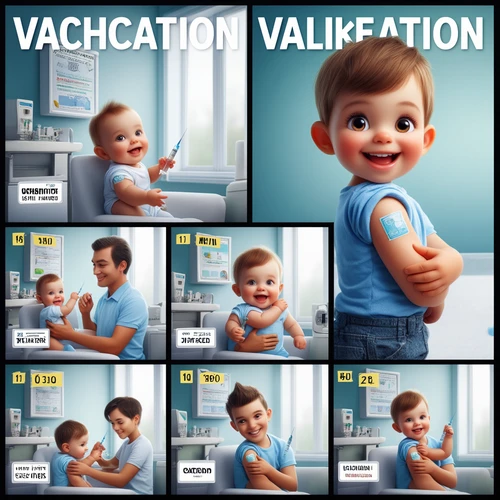As a parent, ensuring the health and well-being of your child is crucial. One of the most important steps in keeping children protected from serious diseases is following an effective immunization schedule. Vaccinations are designed to stimulate the immune system without causing disease, ensuring that children build up antibodies against various illnesses.
The Significance of Immunizations:
Immunizations play a pivotal role in preventing the spread of infectious diseases. They help protect both individuals and communities by creating "herd immunity", which occurs when a sufficient percentage of the population is vaccinated, making outbreaks less likely.
Key Milestones in Immunization Schedule:
- Starting at birth, children receive their first vaccine against Hepatitis B. This is followed by vaccines for Diphtheria, Tetanus, and Pertussis (DTaP), Haemophilus influenzae type b (Hib), Polio (IPV), Pneumococcal disease, Rotavirus, and Influenza.
- As they grow older, children receive additional doses of these primary vaccines. Around 4-6 years old, a booster is given for DTaP, Polio, and MMR (Measles, Mumps, Rubella).
- Adolescent Immunizations: Teens should receive vaccinations against Tetanus, Diphtheria, Pertussis (Tdap), Meningococcal disease, Human Papillomavirus (HPV), and an annual flu shot.
Parental Role in Following the Schedule:
It's essential for parents to be proactive: schedule appointments on time, keep records of immunizations, and communicate with pediatricians to stay current with recommended doses. Being engaged also means staying updated with any guideline changes, as health authorities regularly review and update schedules based on public health needs and scientific advancements.
Common Concerns & Misconceptions:
- The idea that vaccinations can cause autism or other severe illness is a major concern for many parents. Extensive research has shown no causal link between vaccines and conditions like autism, which supports their safety and efficacy under normal circumstances.
- Managing Reactions: Vaccines can sometimes cause minor reactions such as fever or localized pain at the injection site; however, these are typically mild and short-lived. Serious allergic reactions occur extremely rarely but are treatable if prompt medical care is provided.
Parents should consult their pediatricians to discuss any concerns about vaccination schedules and side effects. Regular appointments help stay current with recommendations specific to the child's health status, ensuring optimal protection while addressing individual needs effectively.


